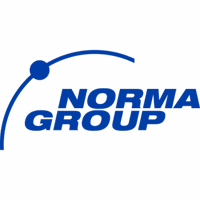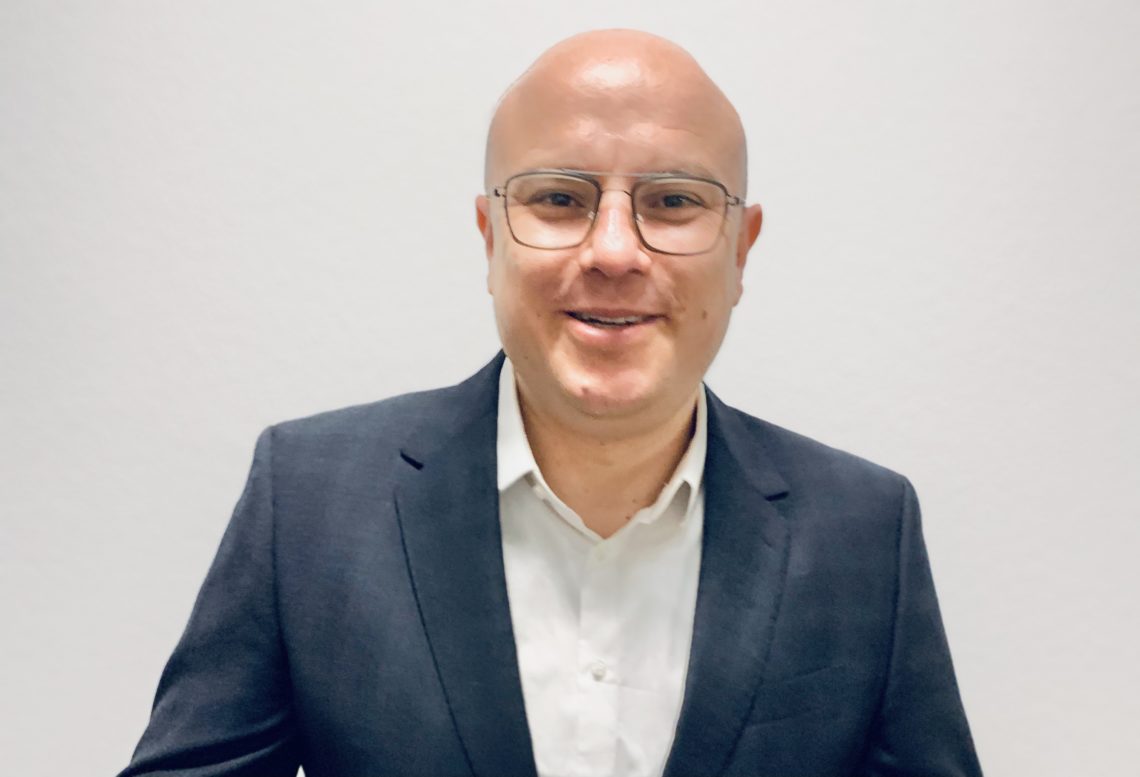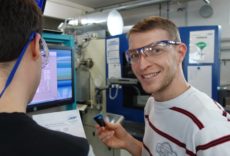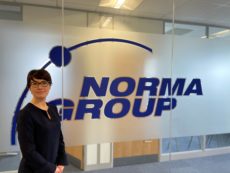This post is also available in: Deutsch
In our NORMAPeople series, our employees from around the world talk about their day-to-day work, how they came to join the company and what they appreciate about their jobs.
Dr. Wissem Ellouze is Vice President of Global Excellence and Industrial/Manufacturing Engineering at NORMA Group. In this interview, he talks about his work, what he is proud of and why he works for NORMA Group.
Wissem, you have been working for NORMA Group since September 2020. What types of activities are part of your job?
One of the things I am responsible for in Global Excellence is to shape the mindset of our employees. Continuous improvement is important. This means not accepting things as they are, but constantly thinking about how they can be improved. In other words, it is a matter of operationally optimizing the entire processes – always with a focus on avoiding inefficiencies. To achieve this, we must redesign how we train employees at all levels and in all departments by using a variety of tools and workshops or by developing new routines. So my job is cross-functional. I always have to keep an eye on the entire process. This starts with the product portfolio and the concepts and ends with the delivery of the respective product to the customer. My team and I design this process chain based on the standards that have proven themselves and constantly optimize them to remain competitive.
Manufacturing Engineering is mainly about designing innovative processes and technologies to keep us at the cutting edge of technology. But what technologies are important and how can they be designed and optimized? This is where Global Excellence and Manufacturing Engineering come together: Through my Manufacturing Engineering team that develops the necessary technologies, I am involved in a product from the very beginning. The next step is to industrialize the respective product at the plants so that we can produce it in series. In the further course, we continue to optimize the processes, set new standards and then launch the product on the market worldwide.
What did you do before you joined NORMA Group?
I am originally from Tunisia and came to Germany to study 25 years ago. I studied mechanical engineering and earned my doctorate in Dortmund. For the last 18 years, I worked mainly in the automotive sector and managed a plant in Tunisia, among other things. Before joining NORMA Group, I spent two years as Director of Global Operations and managed the business unit for new wiring harnesses in electric cars in three different plants in Mexico, Eastern Europe and China. As the electric mobility market is constantly evolving and requires new products, I was also largely responsible for designing the production concepts for these new products. In addition, I worked with my team to ensure the development and operational success of the plants.
What does your day-to-day work look like?
There are standard topics that have to be dealt with on a daily basis. Nevertheless, there are also always new tasks, depending on what the focus is. What’s exciting about it is that we work across several time zones. The working day starts with our colleagues from Asia, then during the day the news from Europe comes in and from the afternoon on we continue with our colleagues from America. Together we discuss topics and news, but also the possibilities for support and co-design. The day is therefore divided into different topics that alternate: On the one hand, there are the standardized topics that are essential for the infrastructure and that need to be worked on and discussed, but on the other hand, there are always new projects and products.
What do you like most about your job?
What I like most is the global team. I really appreciate the fact that my team is a colorful mix. There are colleagues who have been with NORMA Group for 20 years and others who have only been part of the team for one or two years. You could therefore describe our team as a think tank. We bring the old to a new level, always thinking about the future and shaping new ideas and topics so that we remain competitive. Another related aspect is the cooperation between different cultures. Each culture thinks differently, shapes topics differently. The mix of the three different regions ensures that at the end of the day the individuality of each region as well as the different perspectives create an overall picture, which in turn adds value to NORMA Group as a whole.
I also like the product diversity. We have three visions: Joining Products, Fluid Systems, and Water Management. Although these are different products and ideas, there are overlaps. I also find it very exciting that I can design together with my team, and that the three regions and the three visions form a team together. My strength is the strength of the team.
What result of your work are you particularly proud of?
We released a new tool and integrated it into the team within eight weeks. It allows us to visualize and respond transparently and online to all the results and initiatives we are shaping globally in the company. And it does so in a tailored and effective way. In this way, we can help shape the efficiency of the company.
Another thing I’m proud of is the manual that the Manufacturing Team has put out to show what our standards are. We are also starting to design different standardization processes at the moment so that the same standard prevails globally. For the eight months I have been with NORMA Group, that has been very gratifying.
Having already achieved so much, what are your hopes for the future?
For my topic area, I expect continuity, that my team approaches our topics with the same verve as before and that we can thus help shape NORMA Group’s growth. We want the infrastructure and the design of the processes to be completed by the end of the year so that we can play a significant role in shaping NORMA Group’s competitiveness next year. That is very important to me.
Finally, please complete this sentence: I work at NORMA Group because …
… I can currently act cross-functionally with the team and shape competitiveness across regions.




